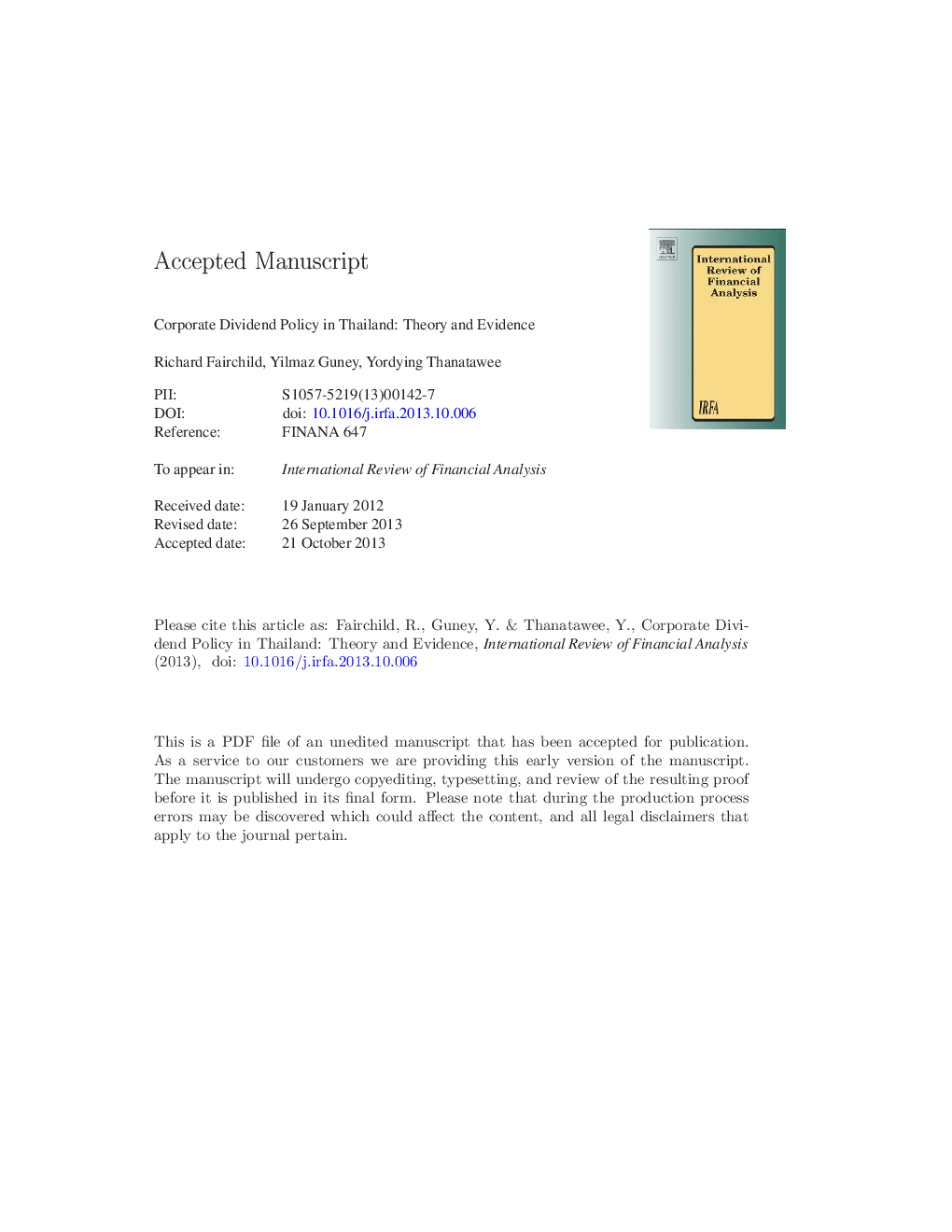| Article ID | Journal | Published Year | Pages | File Type |
|---|---|---|---|---|
| 5084930 | International Review of Financial Analysis | 2014 | 59 Pages |
Abstract
This paper examines dividend changes in an emerging market: Thailand. We begin by considering the possible effects of the Thai corporate environment on dividend policy. We develop a theoretical model that considers the relationship between the strength of investor power and dividends in an agency cost/free cashflow framework. This allows us to consider the conditions for the outcome (positive relationship) or substitute (negative relationship) models, as discussed by La Porta et al. (2000). Our model also allows us to consider the expropriation hypothesis, in which the presence of large controlling shareholders may actually reduce outside investor power, leading to lower dividends. We then turn to our empirical analysis. Employing a large sample of companies that changed dividends in Thailand during the period 1996-2009, we test for the signaling, free cashflow and life-cycle hypotheses. A further contribution of our analysis is that we consider the impact of investor power and ownership on dividends in Thailand. Overall, we find little support for the signaling hypothesis, but we find considerable support for the free cashflow and life-cycle hypotheses. Our analysis of ownership variables suggests that increasing investor power (for example, high ownership concentration together with the presence of domestic institutional ownership) results in higher dividends, in support of the outcome model, rather than the substitution or expropriation models.
Related Topics
Social Sciences and Humanities
Economics, Econometrics and Finance
Economics and Econometrics
Authors
Richard Fairchild, Yilmaz Guney, Yordying Thanatawee,
